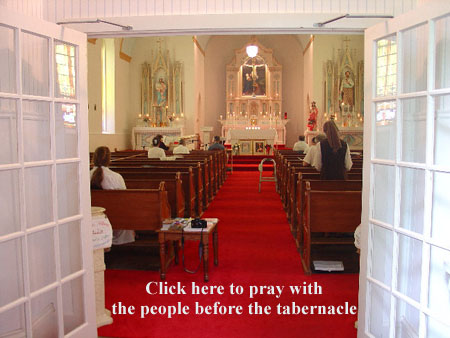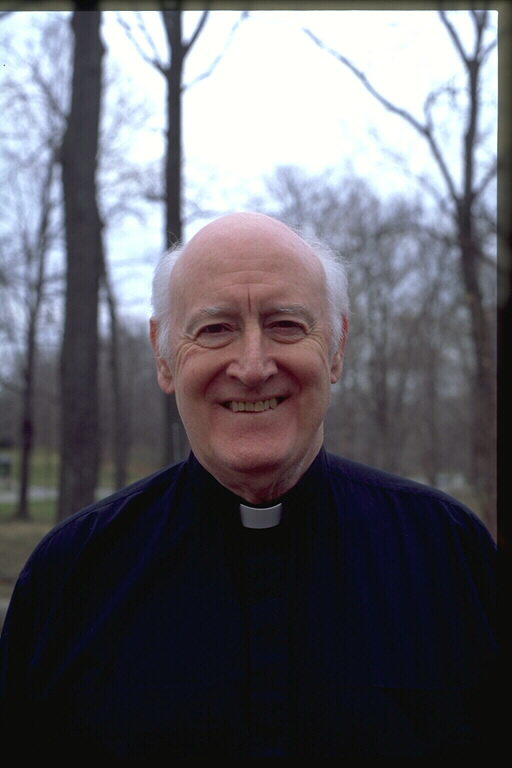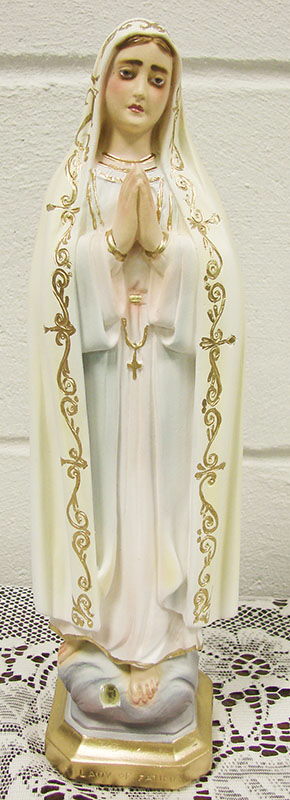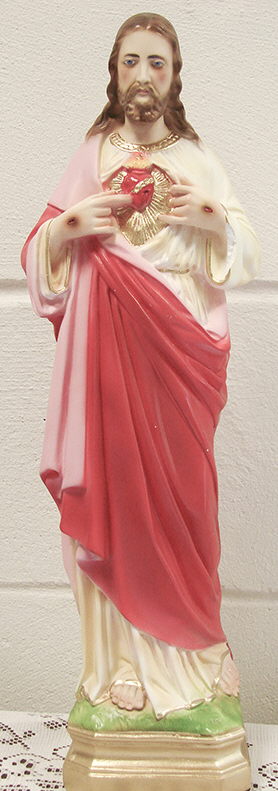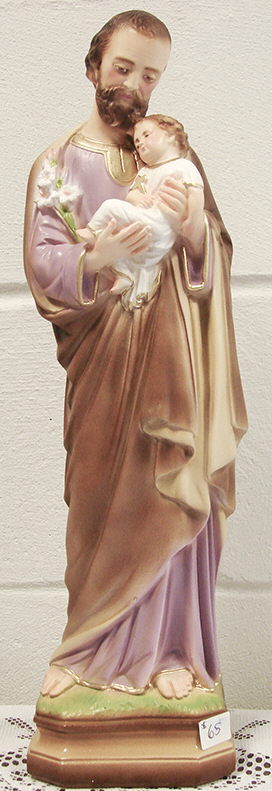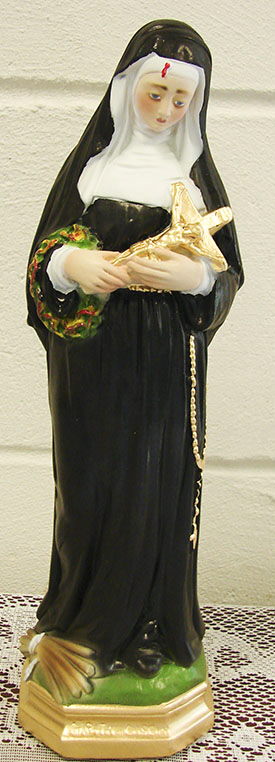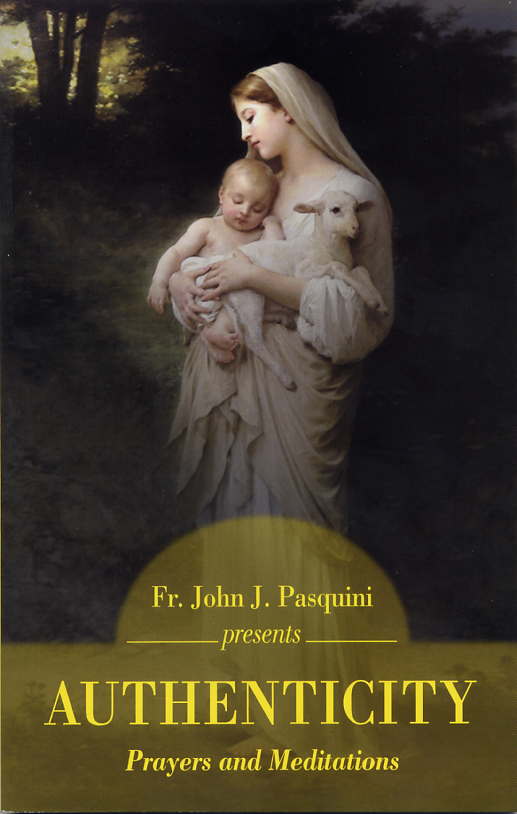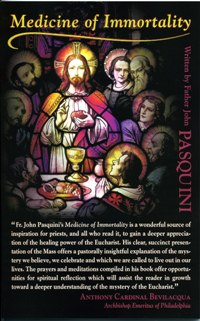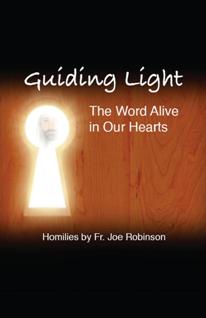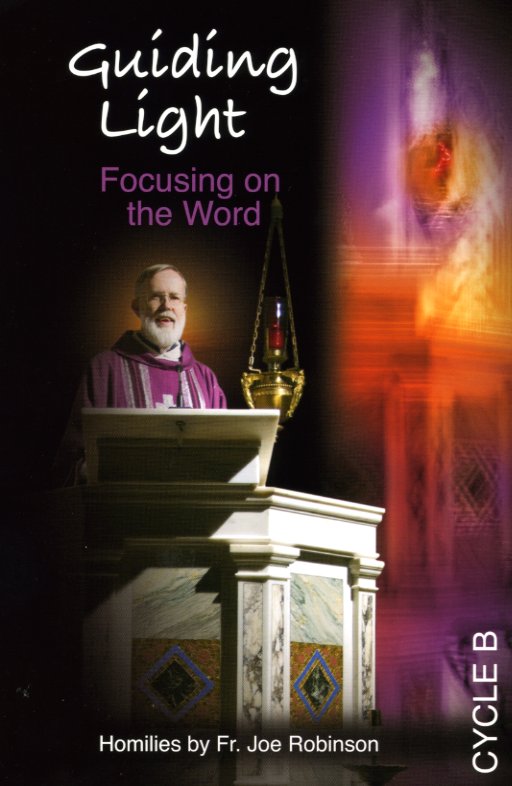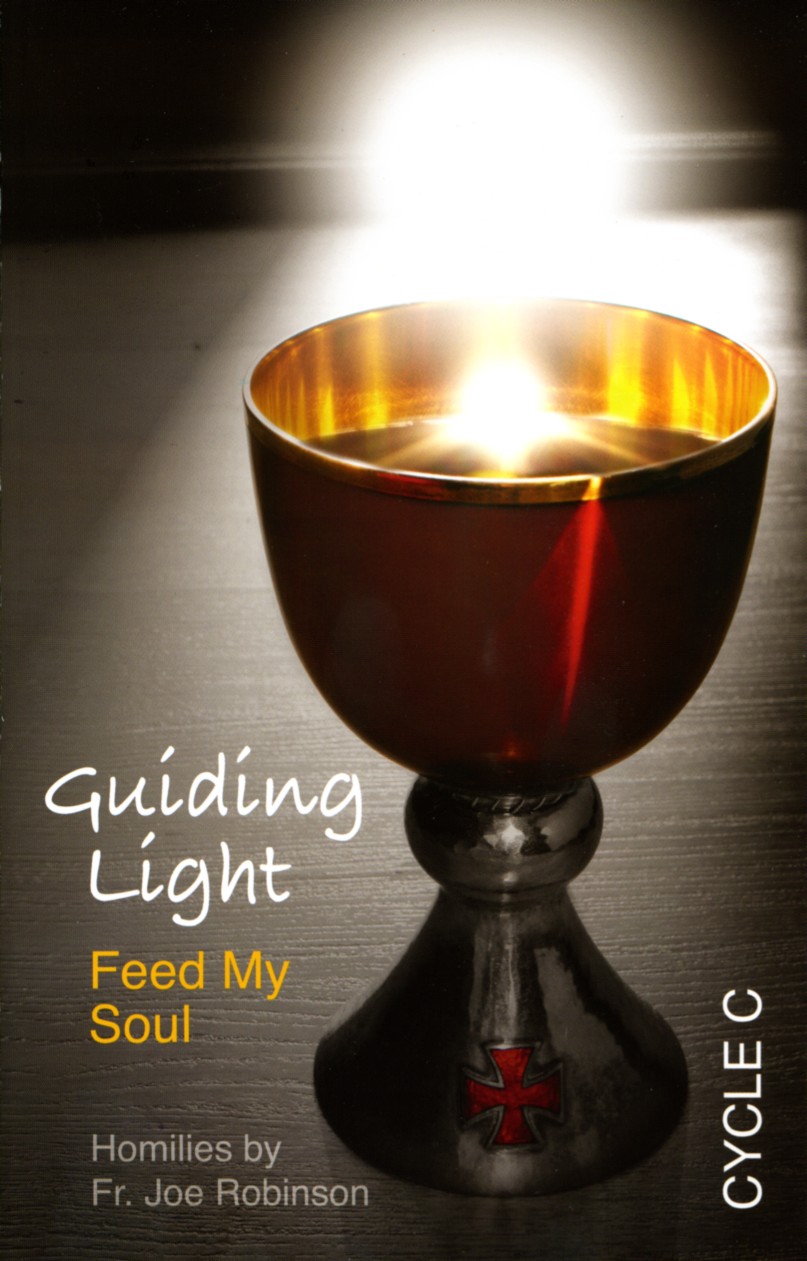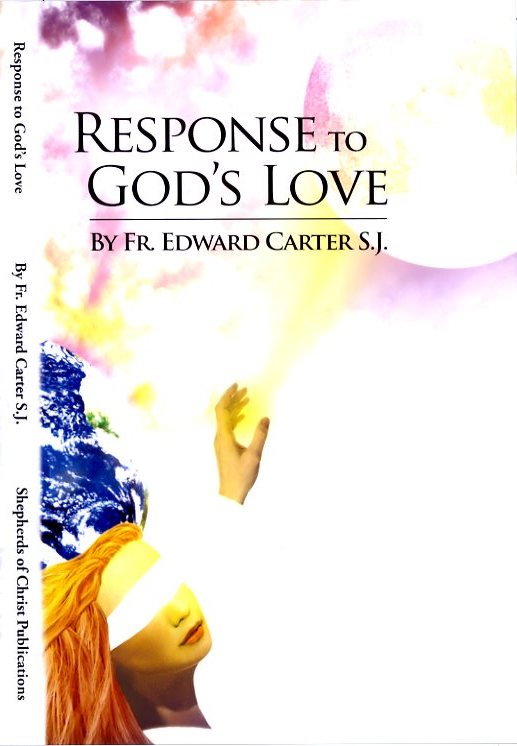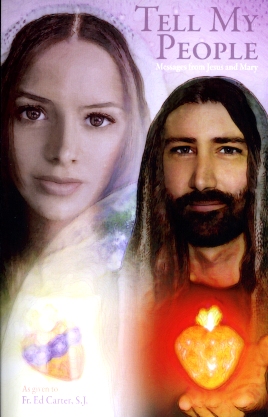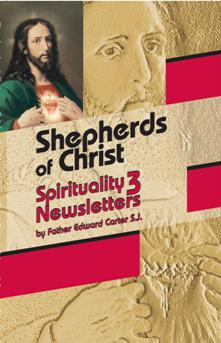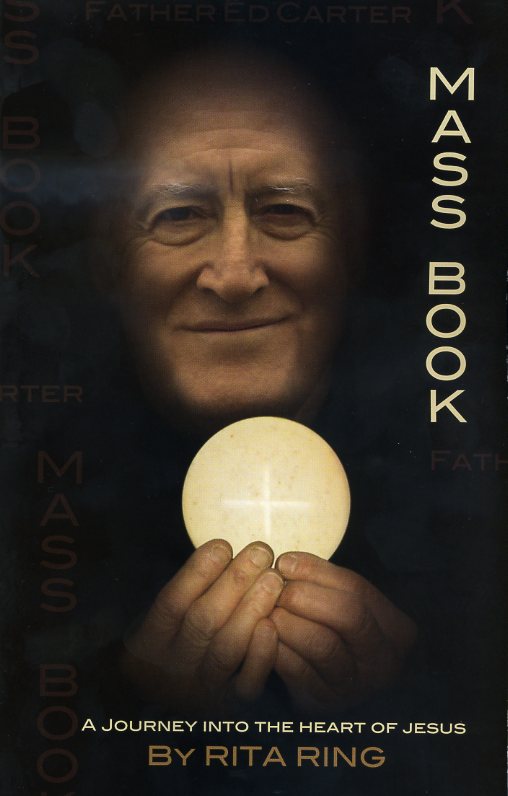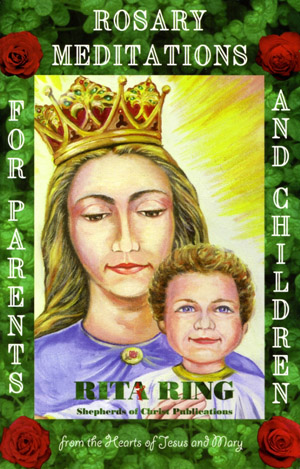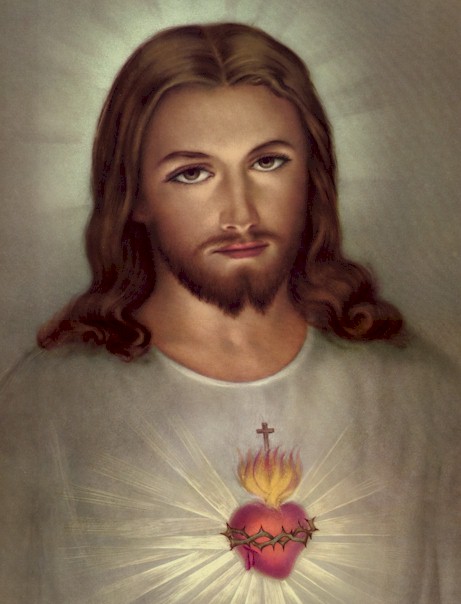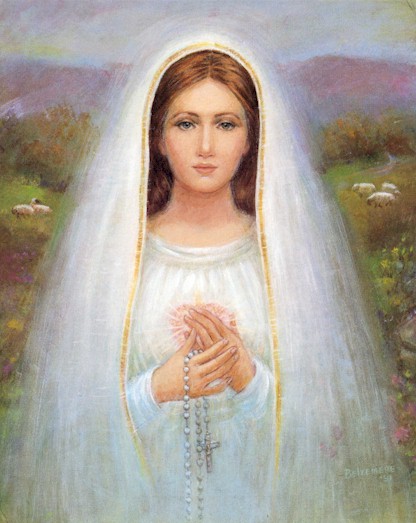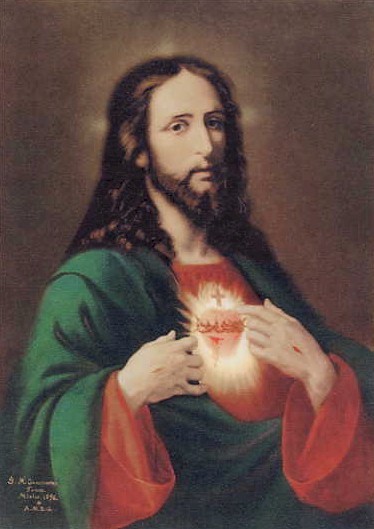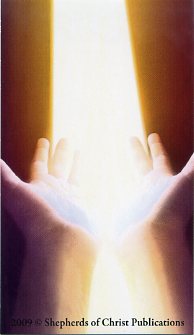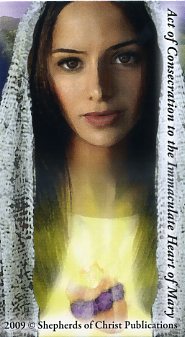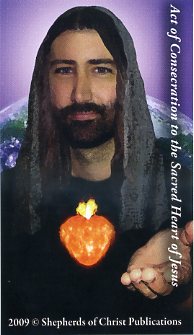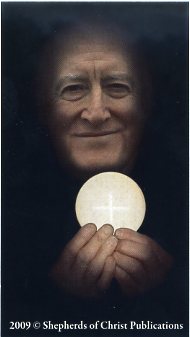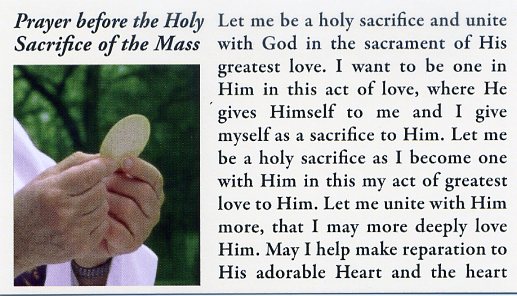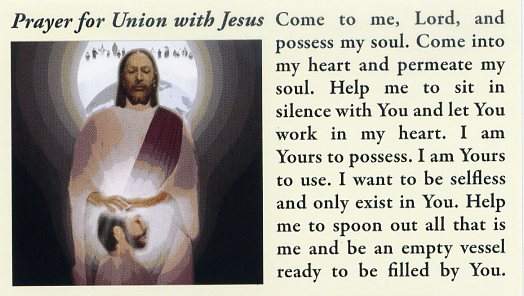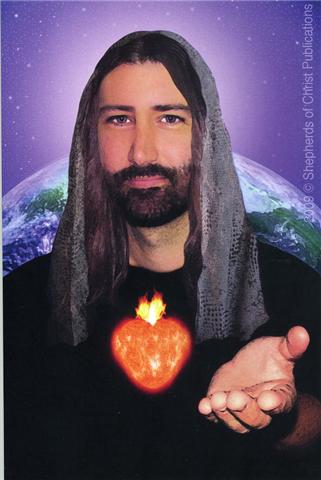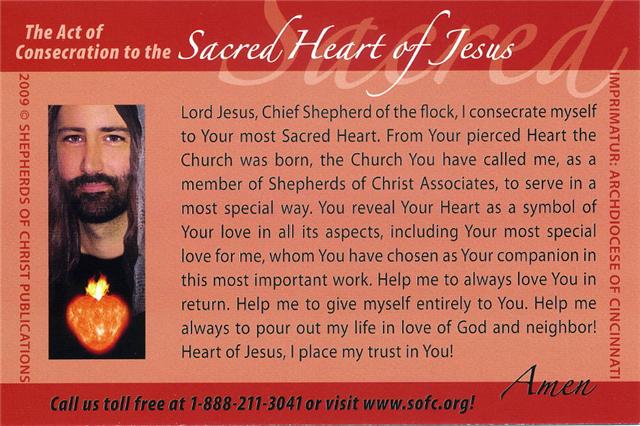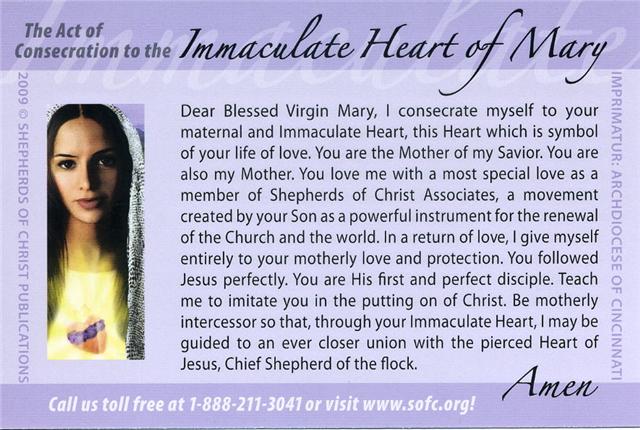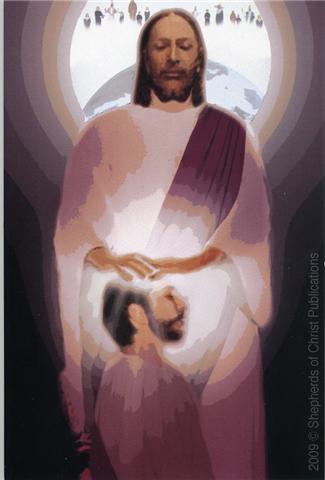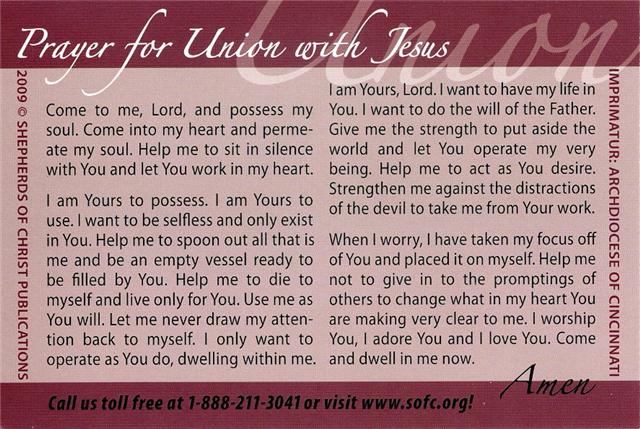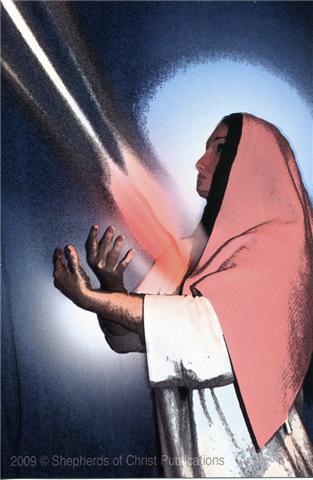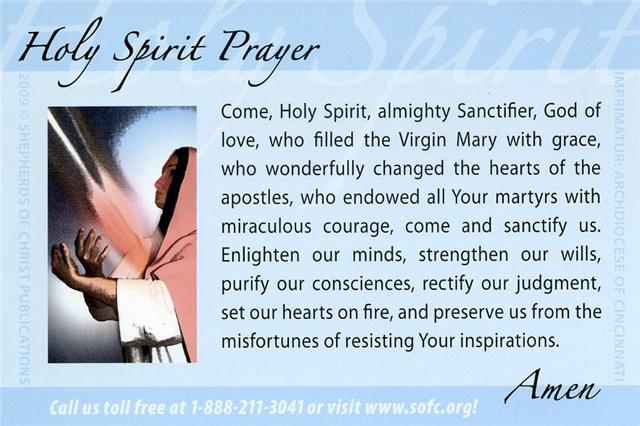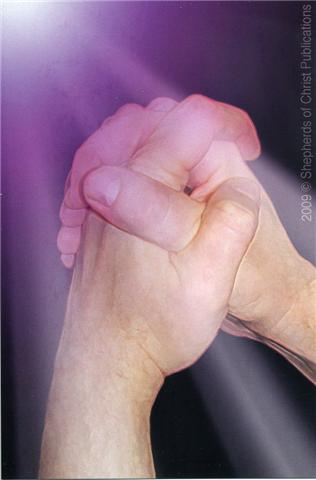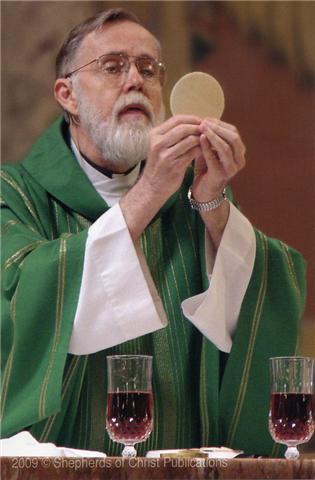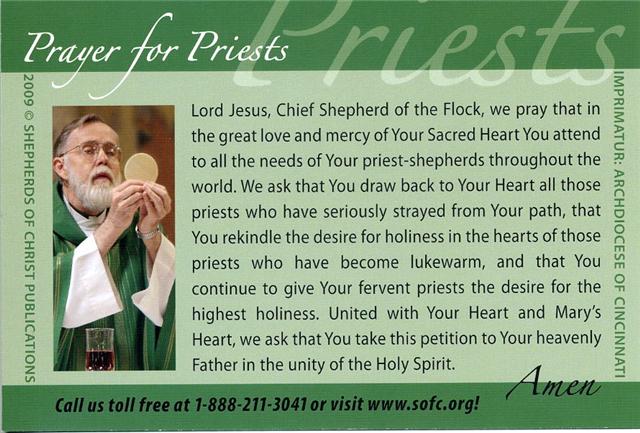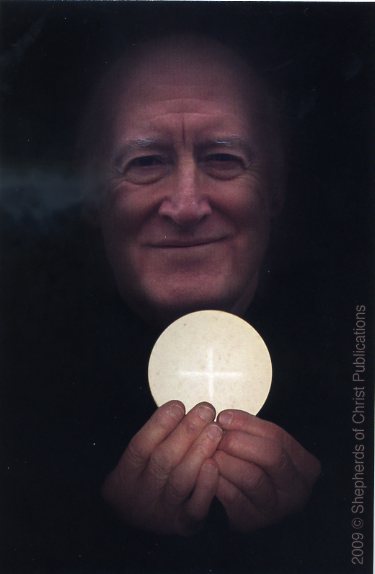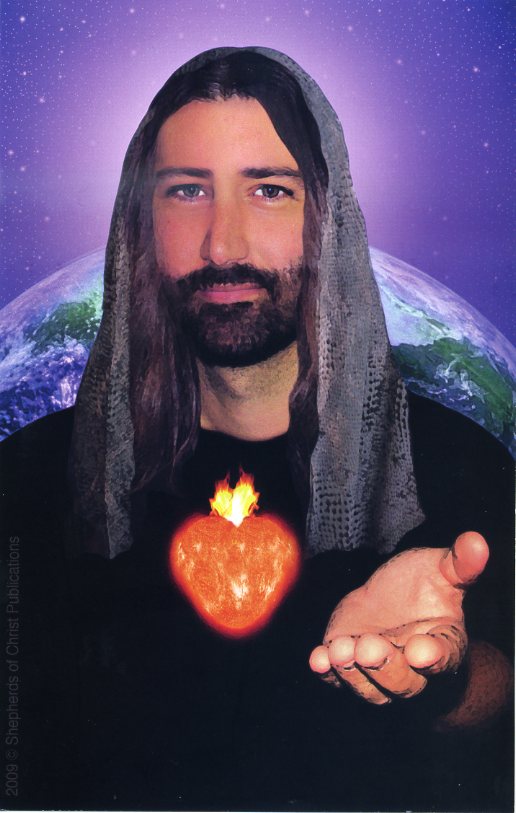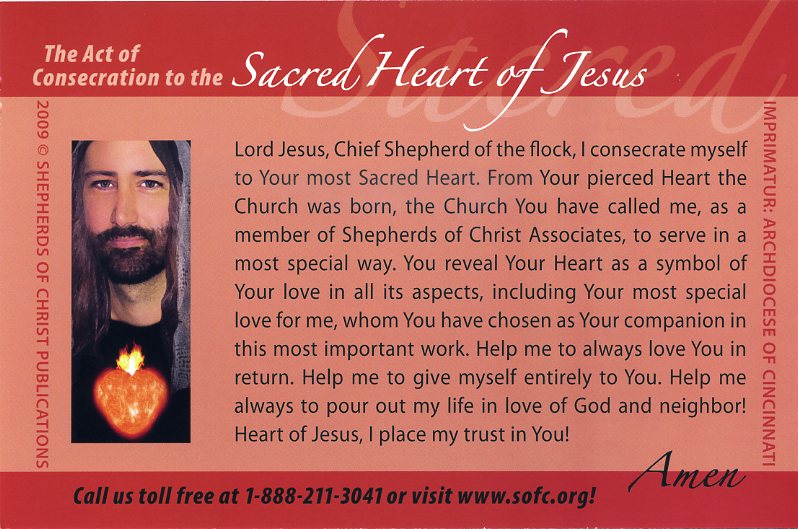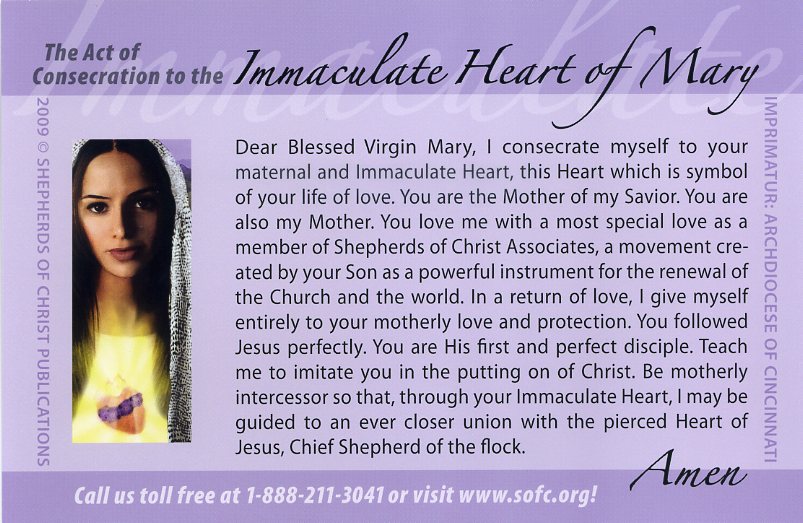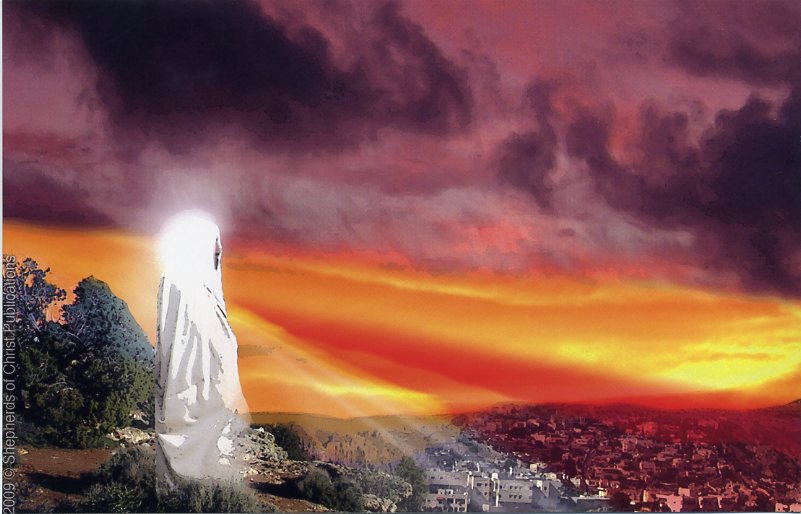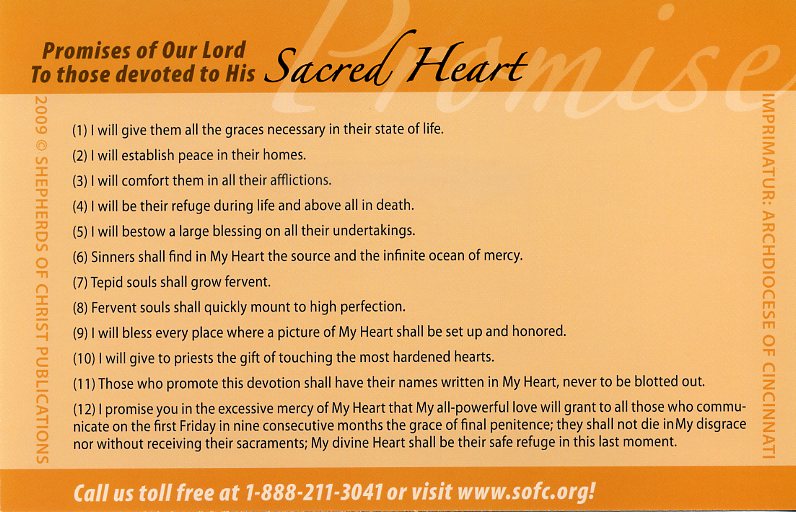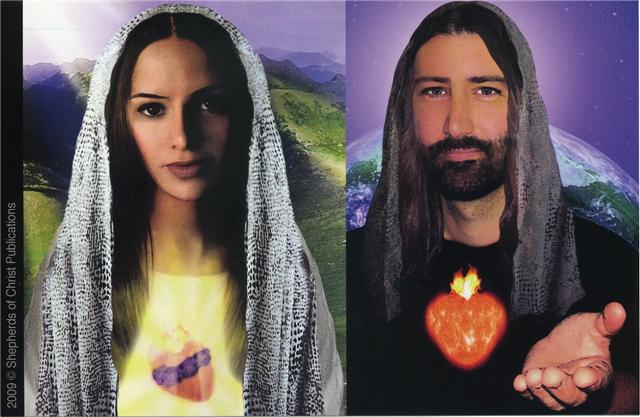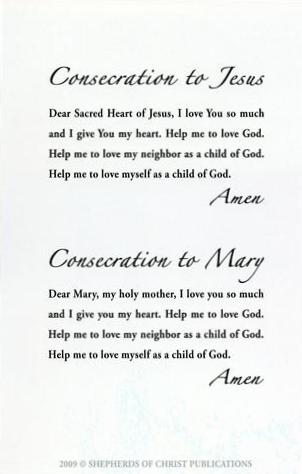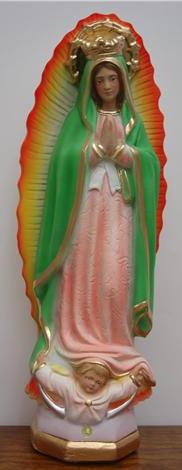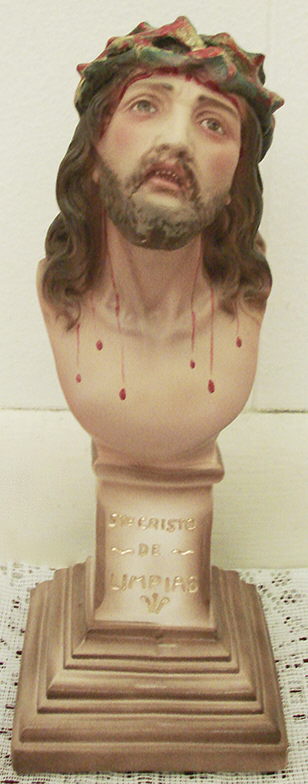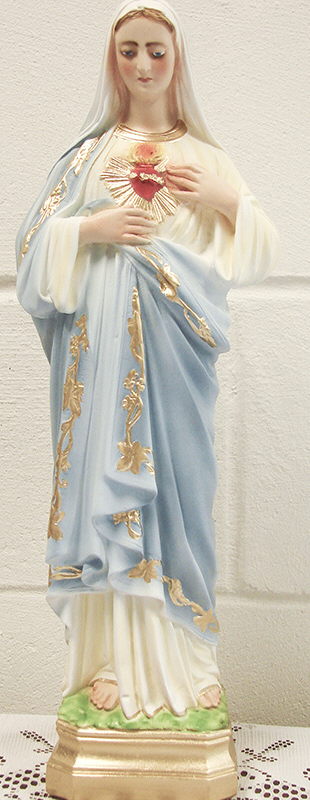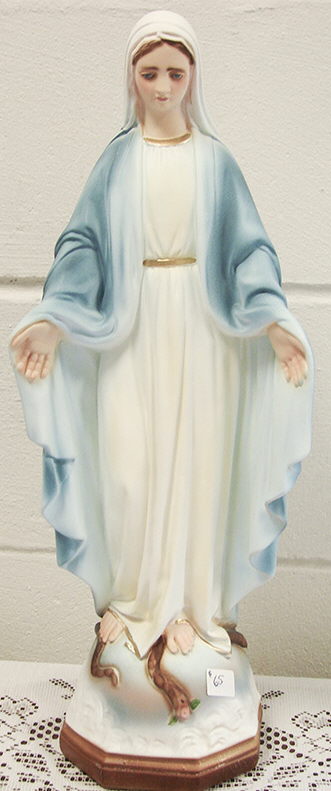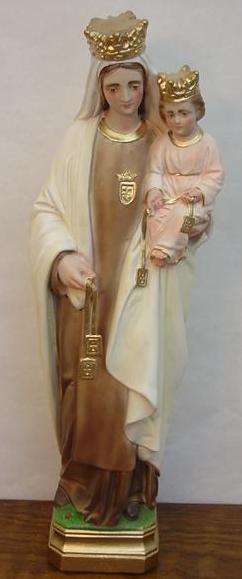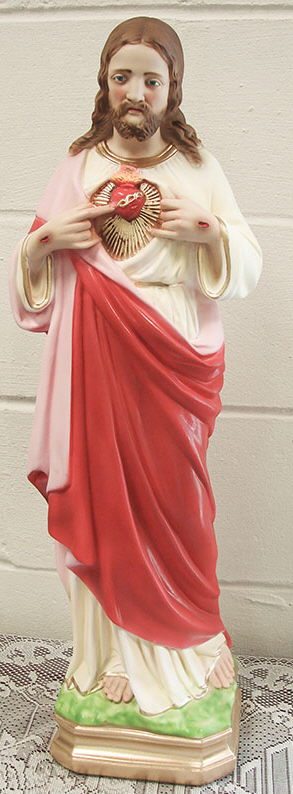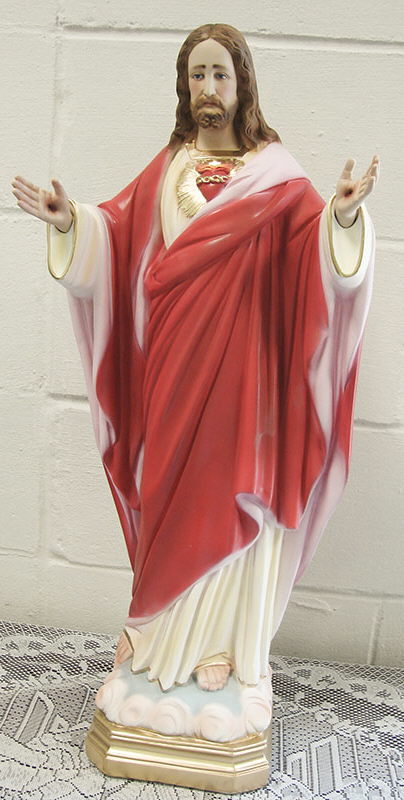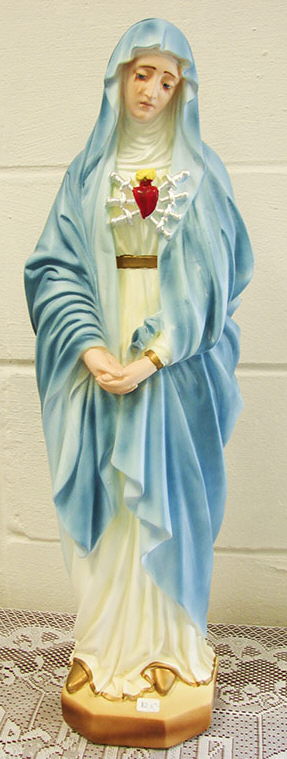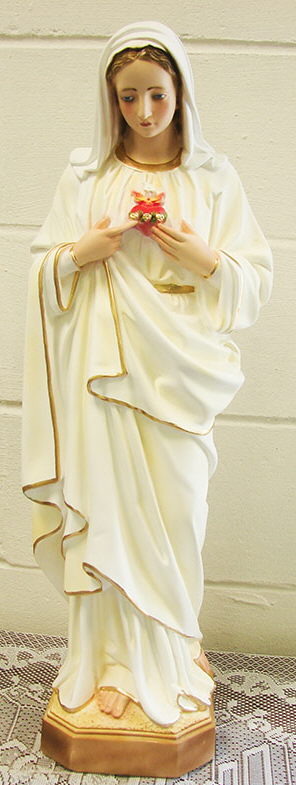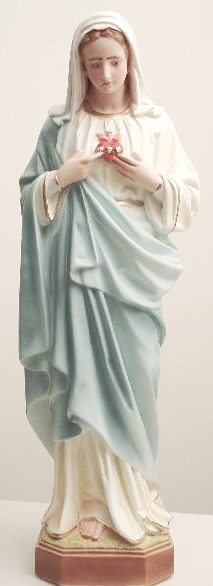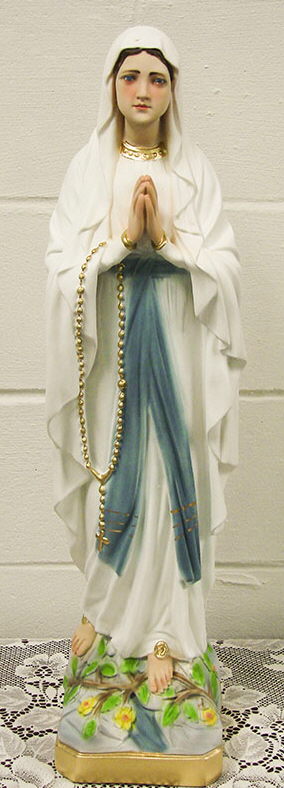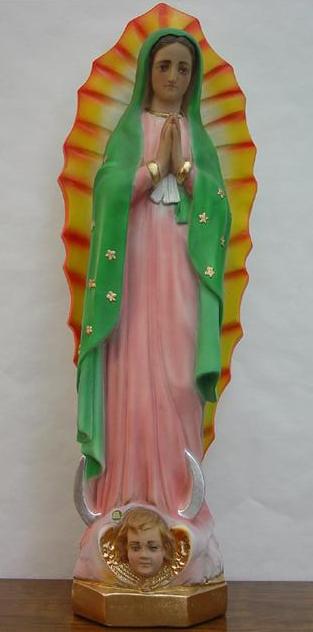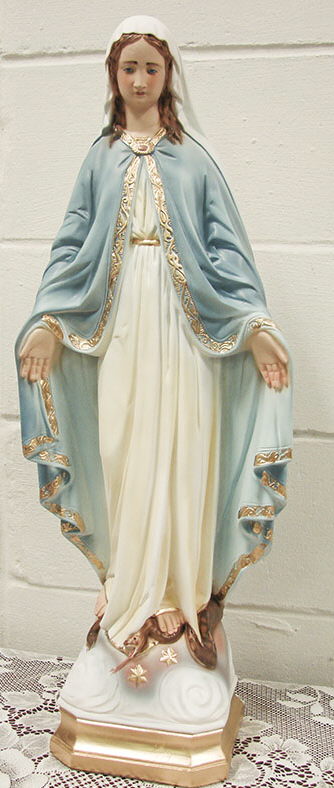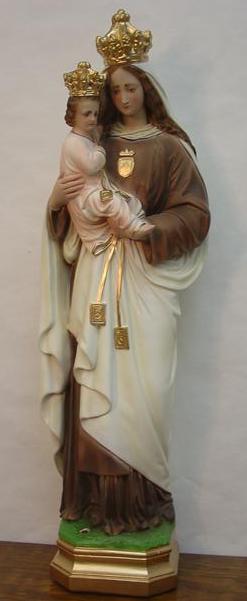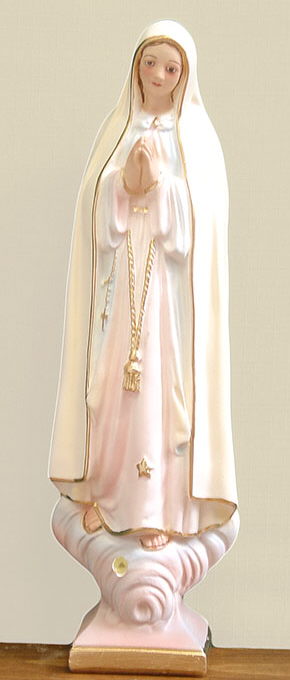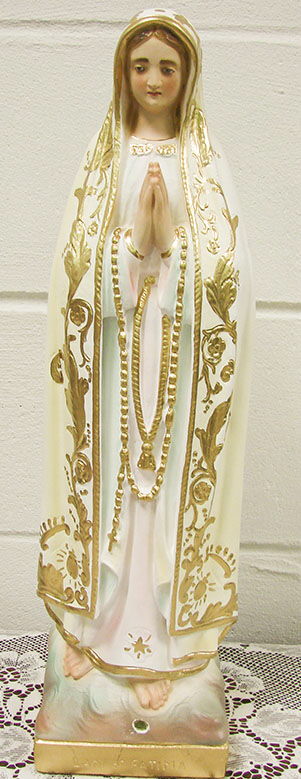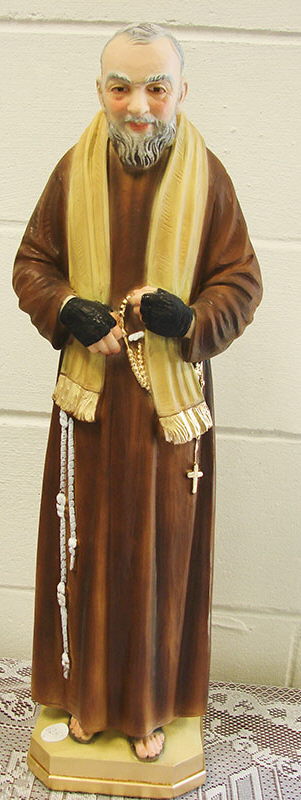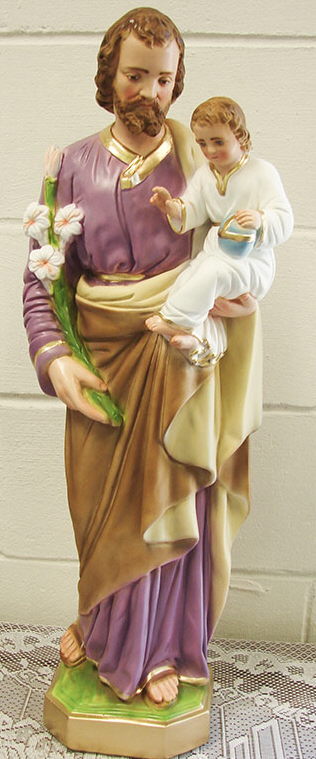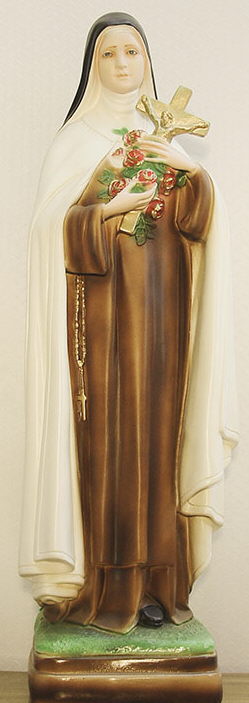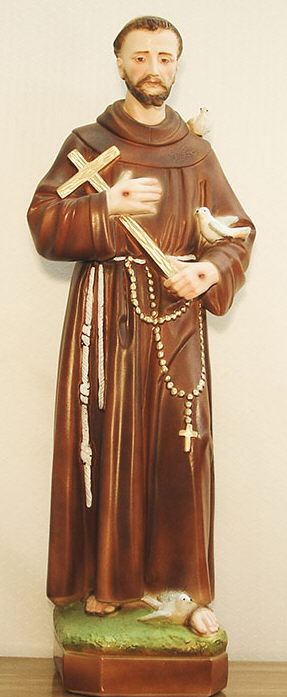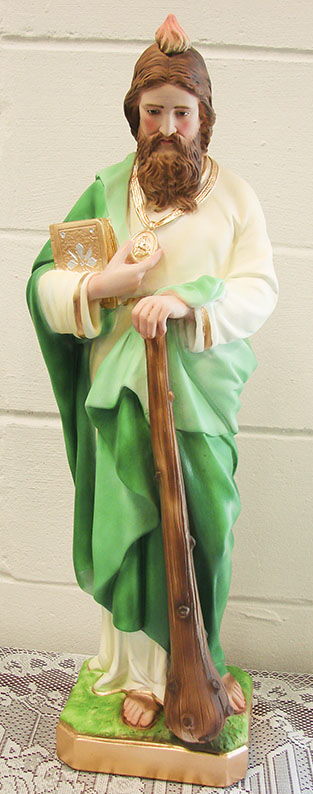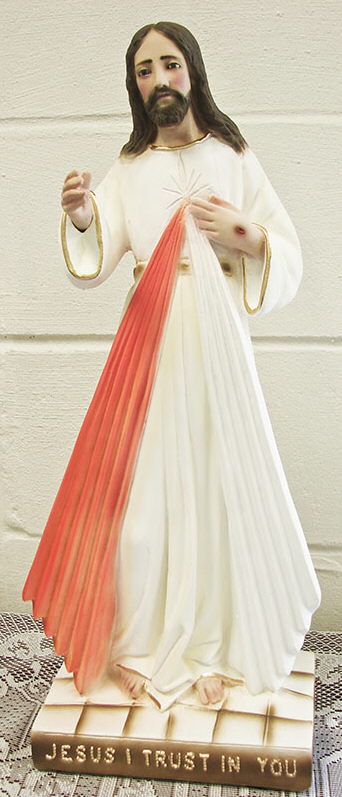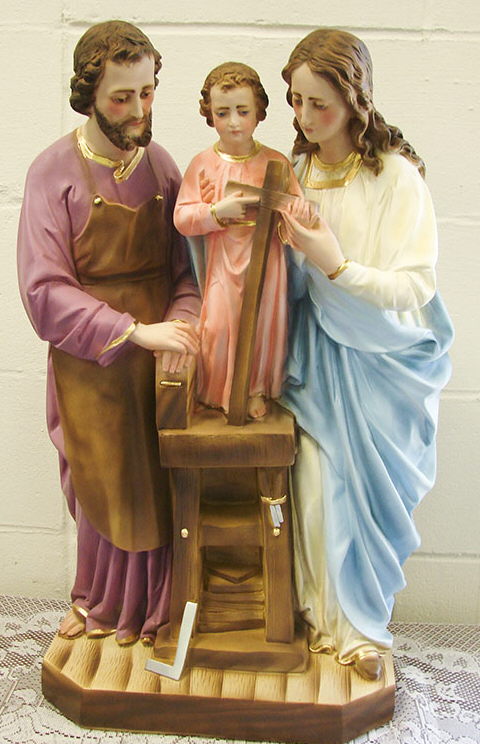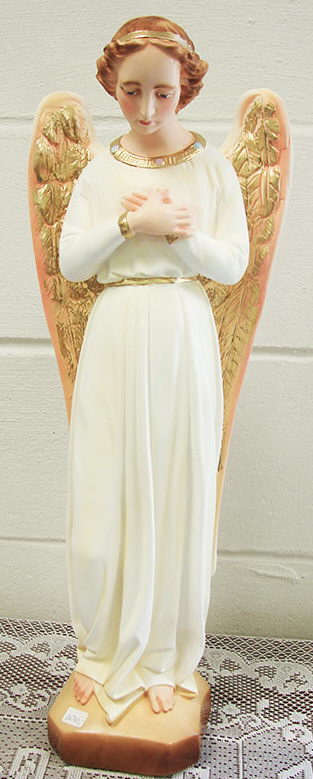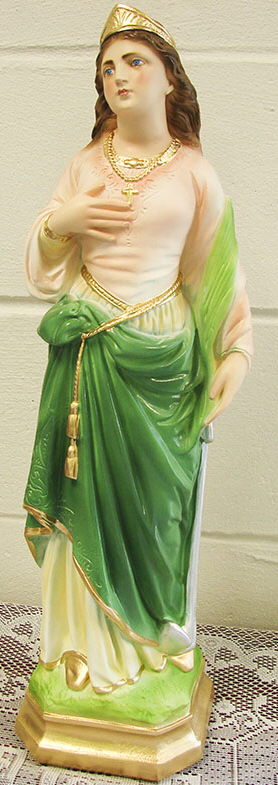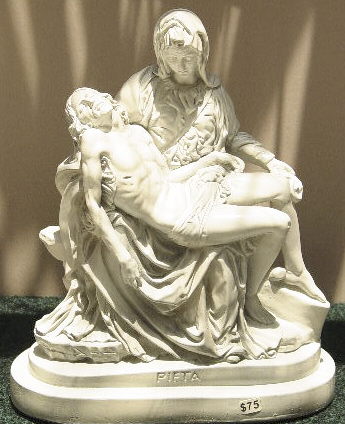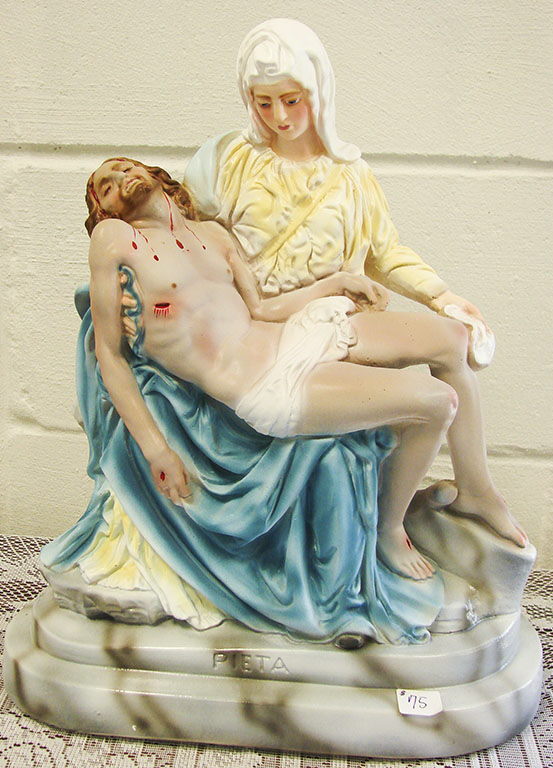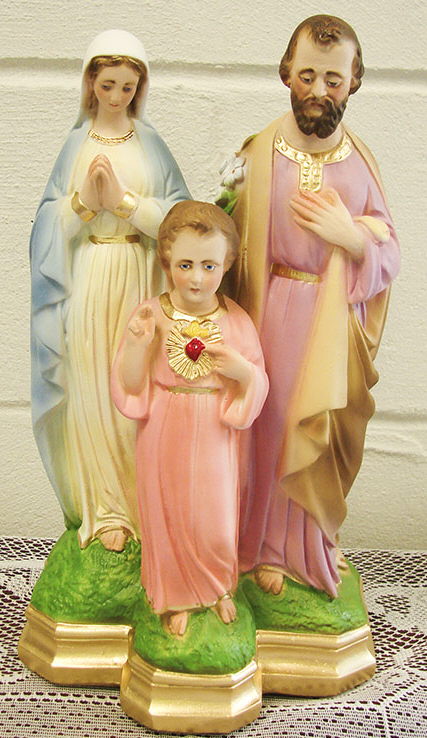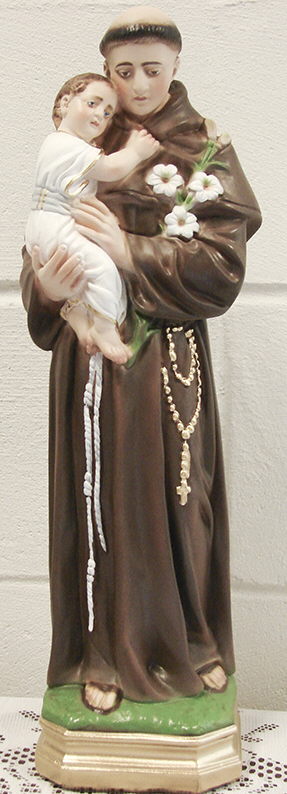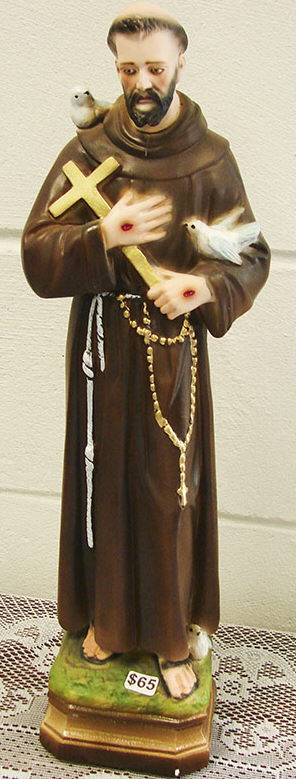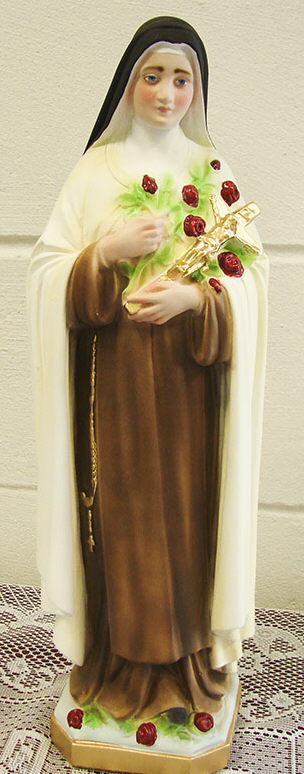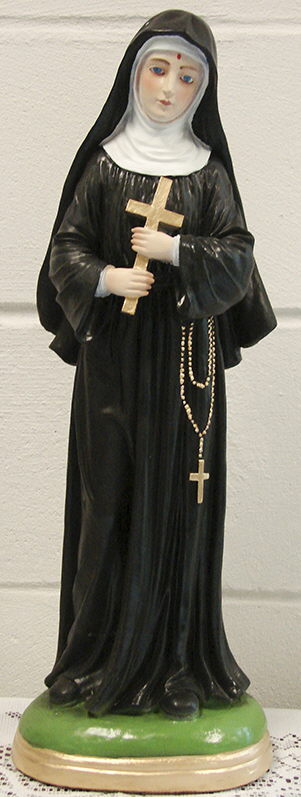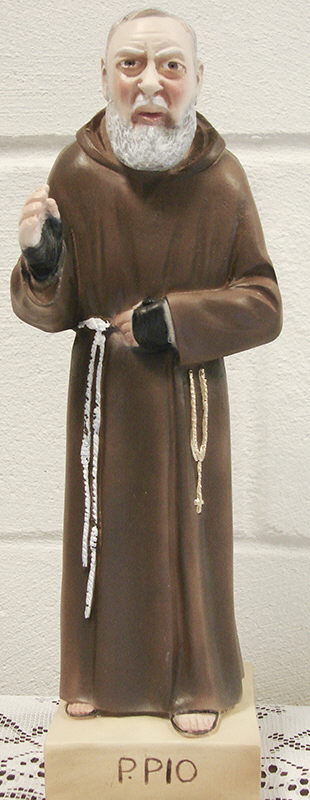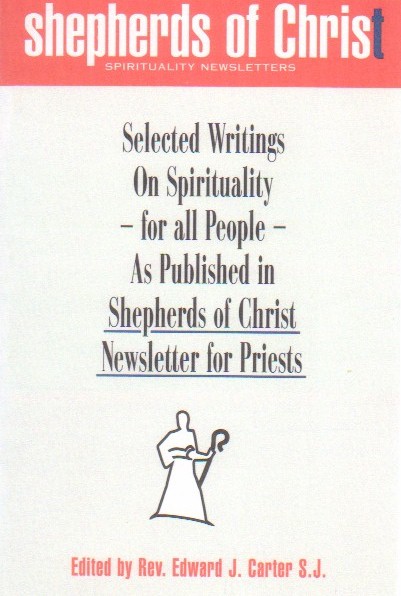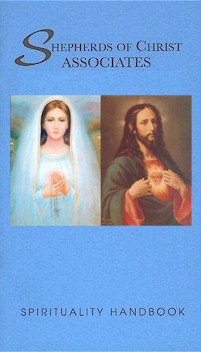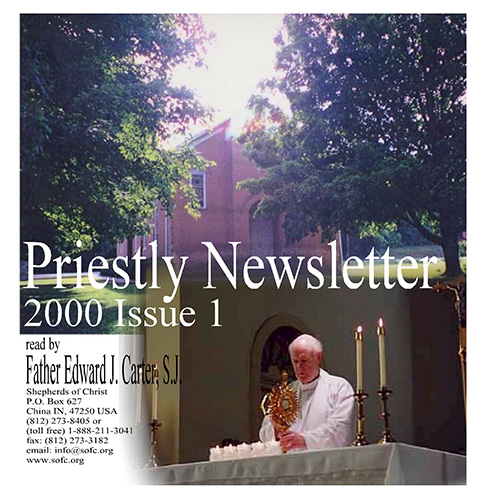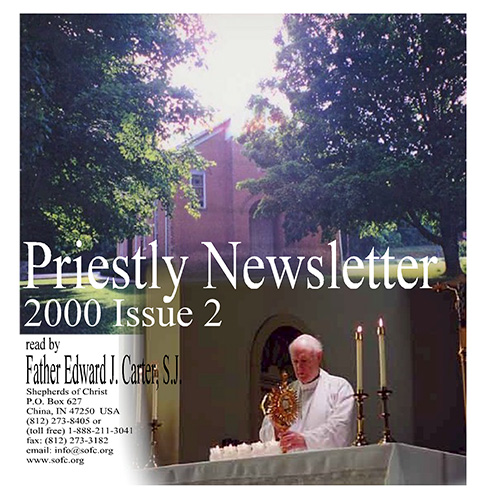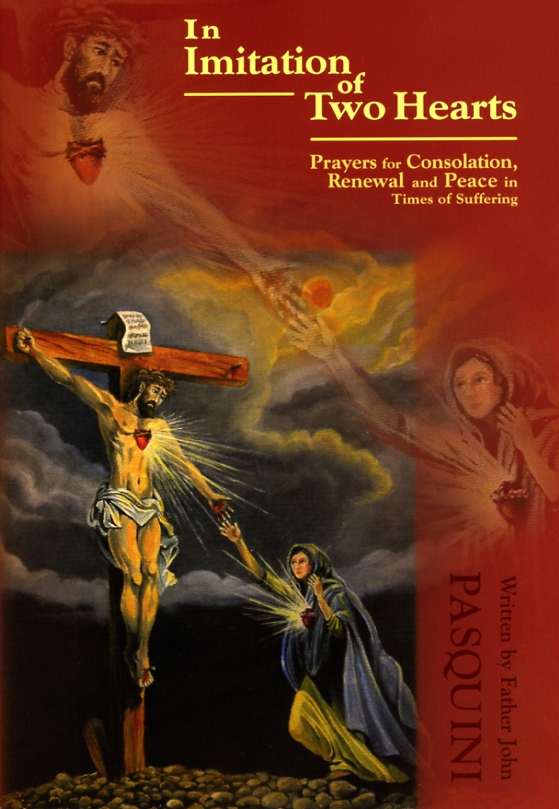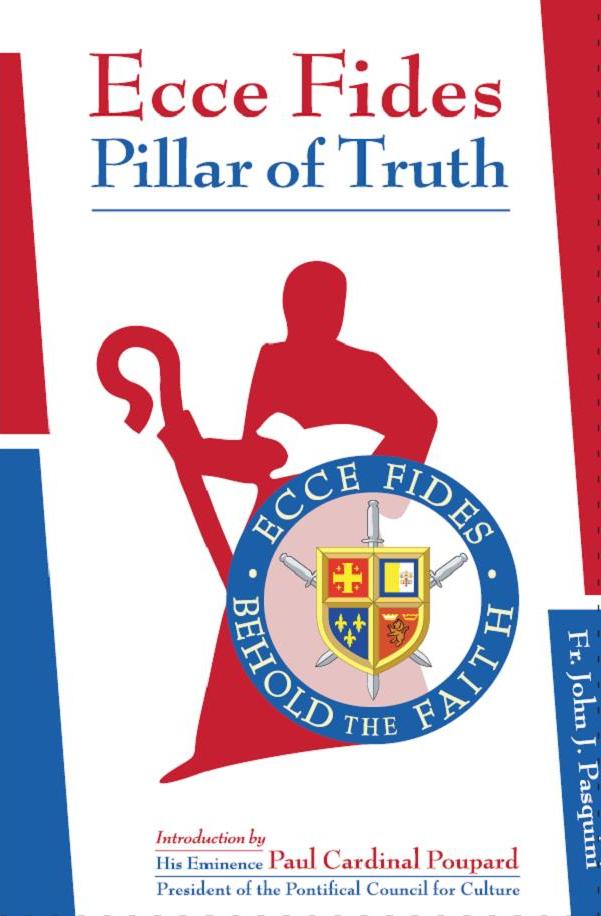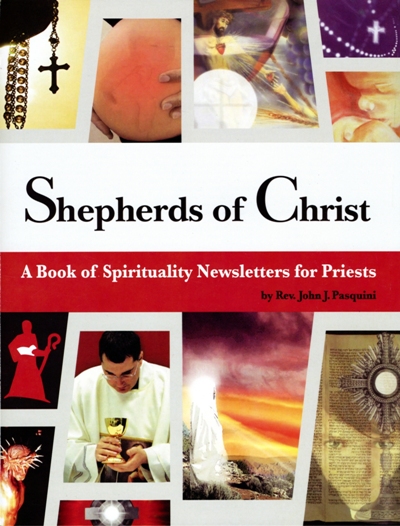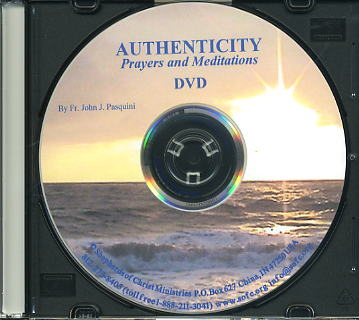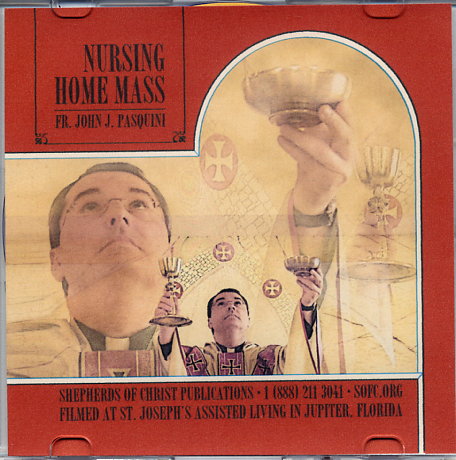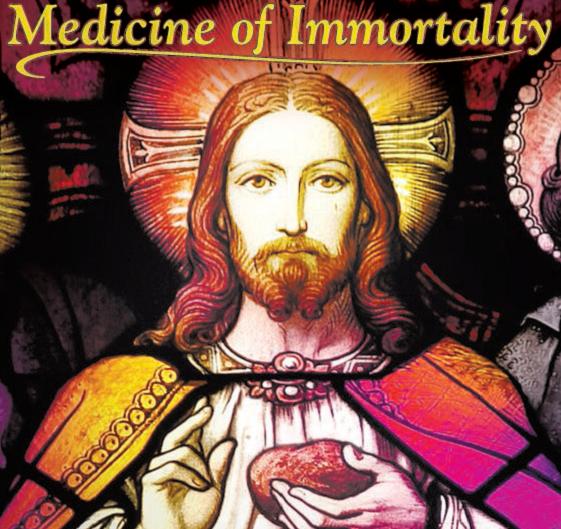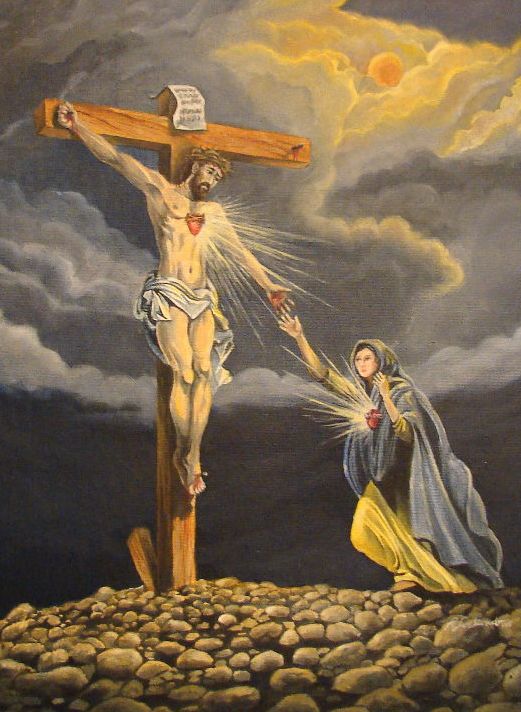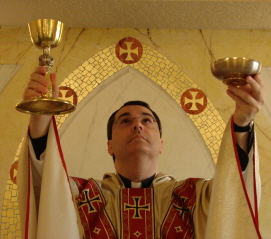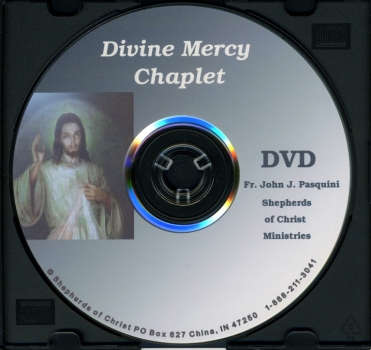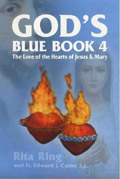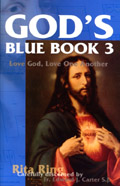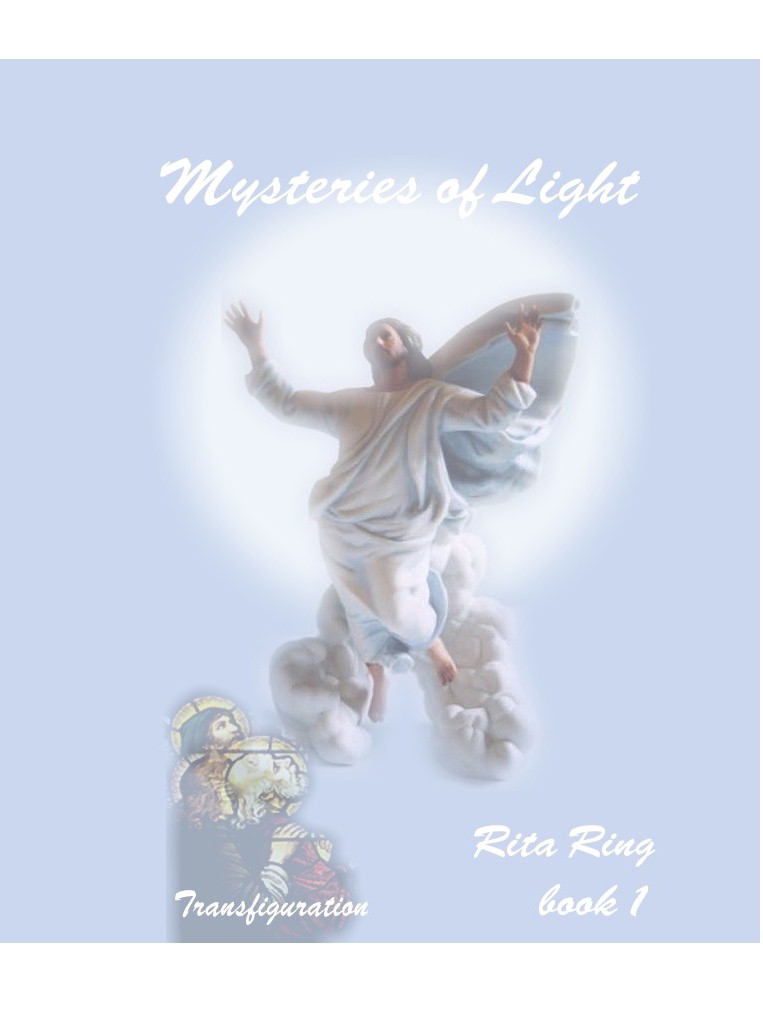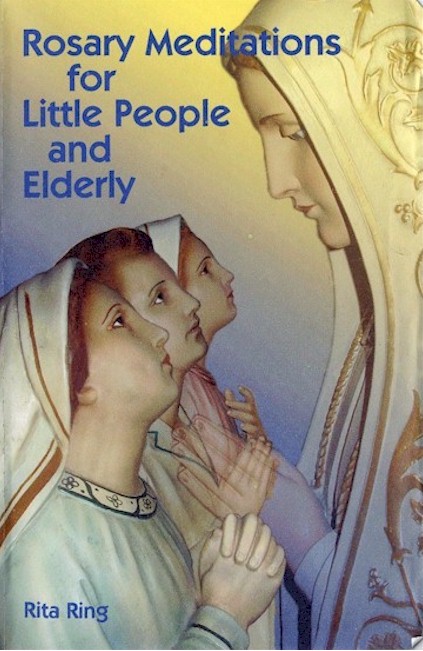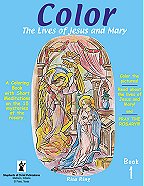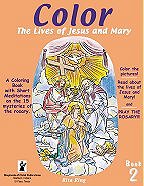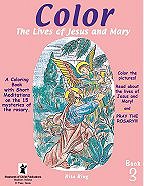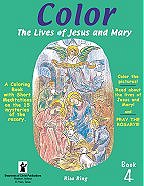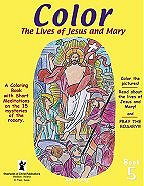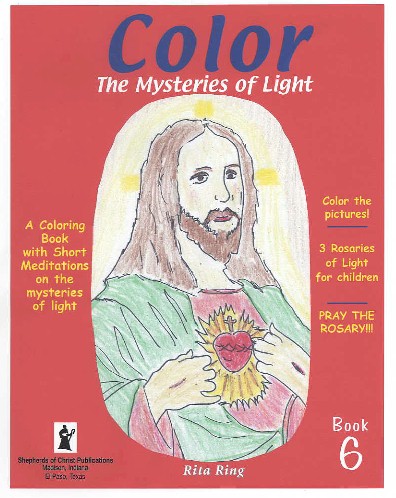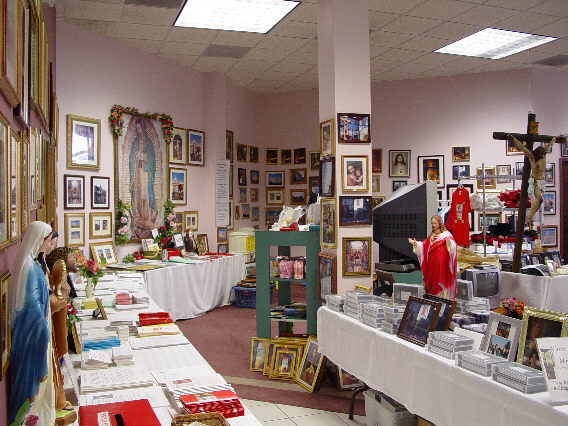. . . The three great offices of
Christ as prophet, king and priest are not exclusive of one
another. Each of them contains the other. This is so because
they are part of the overall mystery of Christ which is
radically indivisible. What is this mystery of Christ? It is
God's concrete plan of our redemption in Christ. It is the
ultimately mysterious, transcendent, wholely other God desiring
to communicate Himself to us in love. It is this same God asking
for our response in love. All of this – God's gift of self to
man and His request for man's response – all of this is centered
in Christ and mediated by Christ. Therefore, we have the term,
mystery of Christ.
This mystery of Christ can be approached under
the headings of Christ as prophet, king and priest. We have
taken this approach thus far in this present chapter because,
among other reasons, it is one of the dominant ways in which
Vatican II presents the mystery of Christ to us. But Again we
emphasize that the mystery of Christ with its various offices
and individual mysteries is profoundly one. When we speak of the
Church as prolonging Christ's Incarnation, or of prolonging His
threefold mission, or of prolonging the mystery of Christ, we
are really expressing the same basic reality.
No one group or component part within the Church
can perfectly relive and continue the Incarnation. Even the
total Church cannot perfectly continue the Incarnation with its
prophetic, kingly and priestly offices. We can therefore
understand why various spiritualities or spiritual "schools"
have arisen throughout the history of Christian spirituality.
All these spiritualities are basically the same. All of them are
aimed at reproducing and continuing the life of Christ in their
adherents. But each of the various spiritualities – Franciscan,
Benedictine, Dominican, Ignatian, Carmelite, to give leading
examples – is in its own way somewhat different. Each reproduces
in its members the mystery of Christ in a slightly different
fashion.
What we have just said concerning the divergent
spiritualities within the Church can be applied even more so to
the various vocations. All states of life radically aim at one
and the same Christian holiness. This is so because we all
receive the same life of grace in Christ. All relive and
continue the Incarnation in the same basic manner. Yet it is
still true that there are differences according to which the
various states of life within the Church prolong Christ's
prophetic, kingly and priestly missions. God has destined that
there be various vocations within His Church in order that the
richness of Christ may be more perfectly projected.
a)
The Laity
In considering
the incarnational aspect of the Church in continuation of
Christ's redemptive work, the vocation of the laity is most
significant. The lay state, because of its intimate connection
with temporal, terrestrial values, is best able to witness to
the incarnational dimension of Christianity. From this
particular point of orientation, let us consider the Incarnation
itself.
Through the Incarnation of the Word, God has
immersed Himself into this world of men with all its created
values. In assuming a real human nature Christ has united all
men to Himself. But man in his human nature is not an isolated
being. Man's human nature situates him in a created order,
which, despite its great complexity, is profoundly united. The
individual man is united with all other men and with the rest of
creation. Through His Incarnation the Son of God thrusts Himself
into this unified situation of man and becomes the center of it.9
Christ has become the center of the world of man
in order to elevate it to a higher level of existence through
His redemptive work. He has come to give a new life to man and
his world. This new life affects not only man himself, but the
whole of material creation over which man is meant to have
dominion. It is not only man who is to be further Christianized
but this entire world order with all its authentic values.10
Compared to the priest and religious, the layman is in a
peculiarly advantageous position to carry the truth of Christ
into many of the more temporal aspects of men's lives.11
By his very vocation and life situation the layman is intimately
involved with the political order, the economic structure, the
business world, family life and other temporal values.
Through His humanity Christ radically involved Himself with all
these concerns of man. It is true that He Himself was not
involved in government, cultural pursuits, marriage and the
like. But the fact that He did not directly confront these areas
of human existence does not mean He was not deeply concerned
with them. When the Son of God assumed human nature He also
assumed all the authentic involvements of human existence. All
of these concerns of man, then, along with man himself, have
been incorporated into the Incarnation.
The Incarnation must be continually applied to
all these areas which pertain to man. This actually happens
through Christ united to His members. The People of God, who are
His full members, have a special task in extending the
Incarnation to all the legitimate interests of man; in our
present context, we repeat that it is especially the task of the
Church's laity to penetrate with the truth of Christ those many
areas of human existence which are partially or totally closed
to the priest and religious.
Such an extension of the Incarnation to all the
authentic values and involvements of human life does not mean
that the supernatural destroys the individual finalities
attached to culture, economics, government and the like.12
For example, the principles and finalities involved in the
science of economics must be respected by Christian and atheist
alike. The principles involved in a sound economic structure are
the same for both. But the ultimate view of the economic
structure will be different for the true Christian. He sees that
the economic structure is intended by God to serve the basic
needs of all men throughout the world, and that it will
not do so unless Christian principles based on the truth of
Christ are involved, however indirectly. This is an application
of the theological truth that man cannot long avoid serious
moral disorder without the grace of God. Consequently, serious
moral disorder in the worldwide economic sphere cannot be
avoided without the grace of God, which because of the
Incarnation, is also the grace of Christ. To put it positively,
a just economic structure can never be achieved without the
healing and elevating grace of Christ. This is merely one
example of how Christ's incarnational grace applies to man's
total situation. The same basic application can be made to all
aspects of man's terrestrial existence. And, it is the layman
who must mediate this incarnational grace of Christ to all these
aspects.
However, the lay vocation cannot by itself give
an adequate expression to the total mystery of Christ. One of
the great dimensions of this incarnate mystery of Christ, as
just stressed, is the fact that God has inserted Himself
irrevocably into the tangible and terrestrial world of men
through the human dimension of His Son. God, therefore, is most
intimately involved with His creation; yet He is ultimately
above this creation, transcendent to it. It can be no other way,
otherwise we have to admit to pantheism.
In Christ's historical life we find witness to
both the incarnational and the transcendent. As He related to
man and, radically, to all the concerns of man through His human
nature. He obviously gave an incarnational witness. Yet through
this same human nature Christ also witnessed to the transcendent
aspect of God. For Christ, in His radical human renunciation,
pointed beyond His human nature to His divine nature, and to the
other transcendent realities of Christianity.
What do we mean when we speak of Christ's radical
human renunciation? First of all, Christ did not independently
dispose of His own life by determining for Himself the plan of
man's redemption, but selflessly followed the economy of
salvation established by His Father. He further surrounded such
a fundamental renunciation with a life of utter simplicity: He
did not marry; He did not possess riches. By such a life Christ
pointed to the ultimate reason of His being with men. He wanted
to draw them to the Divinity. Christ, by the very manner of His
life, demonstrated to man that there is something above marriage
and riches, something above culture, something above all human
values. He is in no way condemning these for as Creator He is
ultimately responsible for them. But through His life with its
unmistakable element of renunciation Christ gives us this
message: He has come to give us a share in His divine life. All
other things surrounding man – marriage, material possessions,
and the like – are meant as aids in living this divine life in
this earthly situation. We are not meant to make ends out of
means. If certain men, and indeed, the great majority, choose to
be involved with marriage and other various human values, let
them always remember to be involved according to the Father's
will. Let them remember that these various incarnational values
are always meant to lead man to a closer union with the
transcendent God, a union which, having its very real beginnings
here below, reaches its culmination only in the beatific vision.
Christ Himself gave up so much in order that we may not mistake
His message. Consequently, Christ, in the manner of life He
adopted, unmistakably witnesses to the role of both the
incarnational and the transcendent in Christianity.
a)
Religious
If the layman
witnesses primarily to the incarnational in Christ, the
religious witnesses more perfectly to the transcendent. Vatican
II states: "The profession of the evangelical counsels, then,
appears as a sign that can and ought to attract all the members
of the Church to an effective and prompt fulfillment of the
duties of their Christian vocation. Since the People of God have
no lasting city here below, but look forward to one that is to
come, the religious state whose purpose is to free its members
from earthly cares, more fully manifests to all believers the
presence of heavenly goods already possessed here below. ... The
religious state clearly manifests that the kingdom of God and
its needs, in a very special way, are raised above all earthly
considerations."13
Yet this witness to the more transcendent aspect
of Christianity is not the only value which the religious state
contributes to the Church. Because of its communal nature,
religious life allows for a corporate apostolic endeavor with
all the advantages which accrue to a common effort. There is a
need in the Church for more effort on the part of individuals in
furthering Christ's redemptive work. The laity, as they carry
Christ to the marketplace in their manifold activities, provide
such a contribution. On the other hand, the great value of
corporate service given to Church and world by the religious
state has been proved over the centuries.
There is one final advantage which the religious
state offers to the life of the Church. Although all the People
of God are called to the highest holiness, the religious state
offers special advantages in the pursuit of holiness to those
so called to such a vocation. Vatican II teaches this, thus
continuing the traditional teaching in this regard.14
Let us not try to hide this teaching of the Church. In our
efforts to bring out the true greatness and necessity of the lay
vocation, let us not minimize what the Church has taught and
continues to teach concerning the excellence of the religious
state. (This is not to say that all religious live up to this
excellence. Some religious are apparently less advanced in
holiness than many lay people.) We should remember that the
special aids to holiness connected with the religious state are
beneficial to the entire body of the Church. For the holiness of
religious helps everyone in the Church just as religious in turn
are helped by the holiness of those of different vocations.
b)
Bishops and Priests
